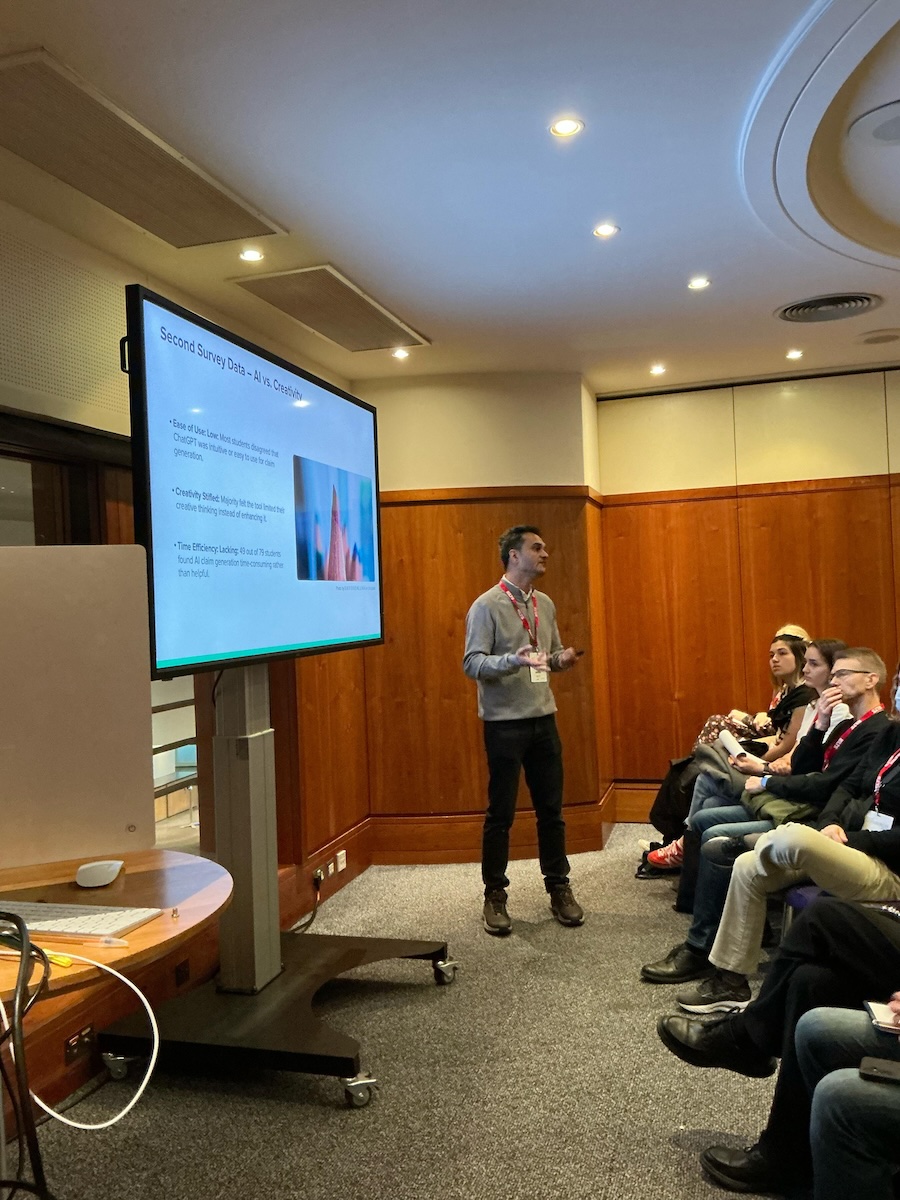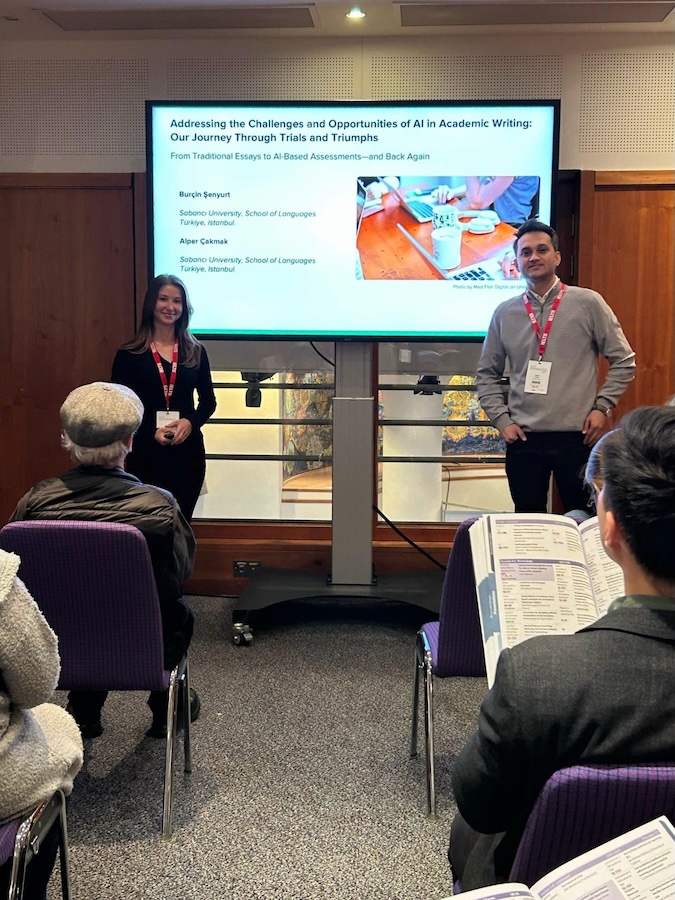IATEFL 2025 Edinburgh - Reflections

IATEFL 2025 Edinburgh
Reflections by Alper Çakmak
At IATEFL 2025 in Edinburgh, we—Alper Çakmak and Burçin Şenyurt—delivered a presentation titled “Addressing the Challenges and Opportunities of AI in Academic Writing: Our Journey Through Trials and Triumphs.” The session was met with strong interest, drawing over fifty engaged participants, and fostering a dynamic discussion on the practical integration of AI into academic writing instruction.
Our talk centered around SPS 102, a freshman-level Social and Political Sciences course that places academic reading and writing at its core. Specifically, we shared our experience piloting AI-integrated assessment models across several semesters and reflected on the pedagogical, ethical, and practical challenges of doing so.
We began by providing an overview of the traditional design of the course—especially the central research paper assignment—and discussed how issues of plagiarism had evolved in recent years. Prior to AI’s rise, common academic integrity violations included excessive copying, poor paraphrasing, and use of paraphrasing tools. However, by 2023, over 90% of reported cases were AI-related, prompting us to reconsider our entire assessment strategy.
In response, we launched an experimental integration of ChatGPT into the written components of the course. The new assessment required students to input AI-generated claims into their arguments and write short academic texts based on scholarly readings, hence training them in source integration, citation, and structured academic writing. The pilot phase during Summer ’23, involving 28 students, yielded zero plagiarism cases and was received positively—60.7% reported a favorable experience, and 75% expressed interest in continued AI use.
However, the Fall ’23 semester, with a larger cohort of 79 students, brought deeper insights. While plagiarism rates remained exceptionally low, student satisfaction dropped considerably. Feedback highlighted key challenges: AI-generated claims often did not align with course texts, time constraints limited meaningful engagement with both the AI and the readings, and students lacked adequate skills in prompt engineering. As a result, many found the process more burdensome than empowering.
Survey results confirmed these observations: 49 of 79 students said AI claim generation was time-consuming, and a majority noted that AI tools constrained rather than enhanced their creativity. Students began to express a strong preference for traditional assessments, prompting us to eventually return to handwritten exams by 2024–2025. This shift drastically reduced plagiarism once again and restored a sense of clarity and ownership over the writing process.
During the IATEFL session, participants appreciated that our study went beyond theoretical debate by offering real classroom data, detailed assessment design models, and concrete student reflections. The feedback focused particularly on our commitment to experimental learning design, transparency with students, and the iterative nature of our process—shifting from traditional to AI-based models and back again when learning outcomes were not met.
Our key takeaways from SPS102 experience emphasizes the following:
- AI is not a universal solution. Without clear objectives and student’s AI literacy training, it can undermine core learning goals.
- Assessment must align with pedagogical purpose. When our goal was to foster independent argumentation, AI-generated claims proved mismatch.
- Ongoing adaptation is essential. Academic integrity frameworks must evolve in harmony with technological advancements.
Looking forward, we are working to expand AI literacy through workshops on prompt writing and critical AI use, while also rethinking assessment structures to balance innovation with integrity. We closed the session by inviting reflections from the audience on whether and how AI tools might eventually evolve to better serve educational aims—without compromising creativity, fairness, or authenticity.
The generous and insightful feedback we received has further affirmed our belief in critical experimentation and pedagogical transparency when navigating AI in education. The sense of realness and real student feedback were what made our presentation alluring for the audience. We remain committed to sharing our findings and refining our approaches in dialogue with the global teaching community.

